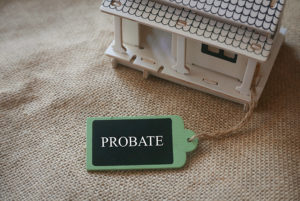What forms do I use to make a Lasting Power of Attorney (LPA)?

A Lasting Power of Attorney (LPA) is a vital legal safeguard that requires specific forms in England and Wales – namely the LP1F for property and financial decisions, and the LP1H for health and welfare matters, along with essential supporting documents such as the LP3 notification form and LP120 for fee reductions. These documents carry significant legal weight as they determine who can make crucial decisions about your life and assets if you lose mental capacity. While this guide provides detailed insights into each required form and its purpose, seeking professional legal advice is strongly recommended to ensure these powerful documents are properly prepared.

Key Takeaway: When is the best time to start your LPA forms?
Navigate the complexities of LPA forms with expert guidance to protect your future decisions.
A complete guide to LPA forms: What you need
Creating a Lasting Power of Attorney requires several essential forms, each designed to protect your interests and ensure your wishes are legally documented:
- Property and Financial Affairs (LP1F): The LP1F Power of Attorney Form puts you in control of who manages your finances. Through this document, your chosen attorney can handle your property sales, bank accounts, investments, and regular bill payments. You have the flexibility to allow its use either immediately after registration or only when needed.
- Health and Welfare (LP1H): Your healthcare and personal welfare decisions are protected through the Lasting Power of Attorney Health and Welfare Form (LP1H). This crucial document ensures your chosen attorney can make decisions about your medical care, living situation, and daily wellbeing if you become unable to do so.
- Notification Forms (LP3): To protect your interests, the LP3 form allows you to name trusted individuals who will be notified when your LPA is registered. These ‘named persons’ act as an additional safeguard in your LPA arrangement.
- Fee Reduction Forms (LP120): Don’t let costs prevent you from creating an LPA. The LP120 form enables you to apply for reduced fees or complete exemption if your annual income is below £12,000 or you receive qualifying benefits.
- Registration Forms (LP2): For those with older LPA versions, the LP2 form ensures your existing arrangements remain valid. This form bridges the gap between previous formats (LP114, LPA117, LPA PW, or LPA PA) and current requirements.
Accessing your LPA Forms
Making your LPA forms accessible and straightforward, the UK government offers several convenient ways to obtain these vital documents:
- Online Service Portal: The simplest way to create your Power of Attorney Form is through the official UK government’s digital service. This user-friendly platform guides you through each step, automatically generates the necessary forms, and helps prevent common mistakes in your application.
- Downloadable PDF Forms: If you prefer working with physical documents, you can download free Power of Attorney Form Pdfs directly from the government website. This option gives you the flexibility to complete the forms at your own pace and keep hard copies for your records.
- Official Government Sources: All Lasting Power of Attorney Forms are available exclusively through the Office of the Public Guardian’s official channels. Whether you choose digital or paper forms, accessing them through official sources guarantees you’re using current and legally valid documents.
Completing your LPA Forms
Setting up your Lasting Power of Attorney requires precise attention to detail when filling out your forms:
- Personal Details Section: Your Power of Attorney Form starts with your personal information. You’ll need to provide your full legal name, current address, date of birth, and any other names you’re known by. These details must exactly match your official identification documents. Even minor discrepancies in your personal details could delay your application.
- Attorney Information: Choosing your attorney is a crucial decision. You’ll need to provide their full legal name, date of birth, address, and specify their powers. You can appoint multiple attorneys and determine whether they act jointly (all must agree) or severally (can act independently). Consider appointing replacement attorneys in case your original choice becomes unable to act.
- Witness Requirements: Each signature in your Lasting Power of Attorney Form needs proper witnessing. Your witnesses must be over 18 and independent. They’ll need to watch you sign and date the form, then add their own signatures and details. Ensure your witnesses aren’t your attorneys or family members to maintain validity.
- Certificate Provider Details: A certificate provider plays a vital role in validating your LPA. This person must be either a professional (like a doctor or solicitor) or someone who has known you well for at least two years. They confirm you understand the LPA’s significance and aren’t under any pressure.
Registering your LPA
Registering your LPA forms marks the final step in securing your future decisions. This process requires attention to detail and patience to ensure everything is properly validated:
- Submission Requirements: Your Power of Attorney Form package must include all completed original forms – not photocopies. The Office of the Public Guardian (OPG) needs your signed LP1F and/or LP1H, completed LP3 notification forms, and any supporting documents like the LP120 if you’re applying for reduced fees.
- Fees and Payments: Each LPA costs £82 to register in England and Wales. If you’re registering both types (property and health), you’ll need to pay £164. Payment can be made by cheque or through the online service portal.
- Processing Timeframes: The OPG typically takes 8-10 weeks to process a correctly completed Lasting Power of Attorney Form. This includes a mandatory 4-week waiting period allowing people to raise concerns about the LPA.
- Common Registration Issues: Simple mistakes can cause significant delays. The most frequent issues include missing signatures, incorrect witness details, and incomplete certificate provider information. The OPG will return forms with errors, requiring corrections and potentially additional fees.
Modifying your LPA
Once your Power of Attorney Form is registered, certain changes might be needed over time. Here’s what you need to know about modifying your LPA arrangements:
- Amendments Process: After registration, you can only make limited changes to your Lasting Power of Attorney Form while you still have mental capacity. These include updating contact details or notifying the OPG of significant changes in circumstances.
- Cancellation Procedures: You can cancel (revoke) your LPA at any time while you have mental capacity. This requires completing a formal deed of revocation and notifying your attorneys, the OPG, and any banks or organisations that hold a copy of your LPA.
- Updating Attorney Details: If your attorney’s circumstances change – such as a new address or name change through marriage – you must inform the OPG in writing. For more significant changes, like removing or replacing an attorney, specific procedures apply.
Do I need a lawyer for my LPA?
Making decisions about legal support for your Power of Attorney Form requires careful consideration:
- Self-Completion vs. Professional Support: While you can complete the forms yourself using the official guidance, a solicitor provides peace of mind that everything is legally watertight. They’ll ensure proper witnessing, help avoid common mistakes, and provide secure storage for your documents.
- When to Seek Legal Help: Professional legal support is particularly important if you have complex financial affairs, overseas assets, business interests, or family dynamics that could lead to future disputes. It’s also crucial if you’re unsure about any aspect of the process.
- Benefits of Professional Assistance: A solicitor brings expertise in drafting and reviewing your Lasting Power of Attorney Form, ensuring it reflects your exact wishes. They can spot potential issues before they become problems and add specific clauses to protect your interests.
- Cost Considerations: While solicitors’ fees vary, they typically range from £400 to £1,000 for a single LPA. This is in addition to the £82 registration fee. However, many consider this a worthwhile investment given the document’s significance and long-term implications.
FAQs
- Where do I get LPA forms? Get your General Power of Attorney Form UK PDF directly from the government website (gov.uk) or through the Office of the Public Guardian’s online portal.
- What’s the difference between lasting and Durable Power of Attorney Form? ‘Lasting’ power of attorney is the UK term, while ‘durable’ is used in the US. They serve the same purpose but use different forms.
- Can my attorneys live abroad? Your attorneys can live overseas, but they must have a valid UK bank account and be willing to travel to the UK if needed.
Creating your Lasting Power of Attorney forms requires careful attention to detail and proper understanding of the process. While you can complete the forms independently, seeking professional guidance can ensure your documents are properly prepared, giving you peace of mind about your future protection and security.
Secure your future decisions today!
Qredible’s network of solicitors specialises in LPA forms and can help ensure your wishes are properly documented.
KEY TAKEAWAYS
- Lasting Power of Attorney forms come in two types – the LP1F for financial decisions and the LP1H for health matters, each requiring separate applications and registration fees.
- The registration process takes 8-10 weeks and costs £82 per LPA, with fee reductions available for eligible applicants through the LP120 form.
- All forms must contain original signatures and be properly witnessed, with a certificate provider confirming your understanding of the document.
- Changes to registered LPAs are limited, making it crucial to complete forms correctly the first time.
- Professional legal guidance is recommended for complex situations or when unsure about form requirements.
Do you need a solicitor?
Find a solicitor on Qredible in just a few easy steps















